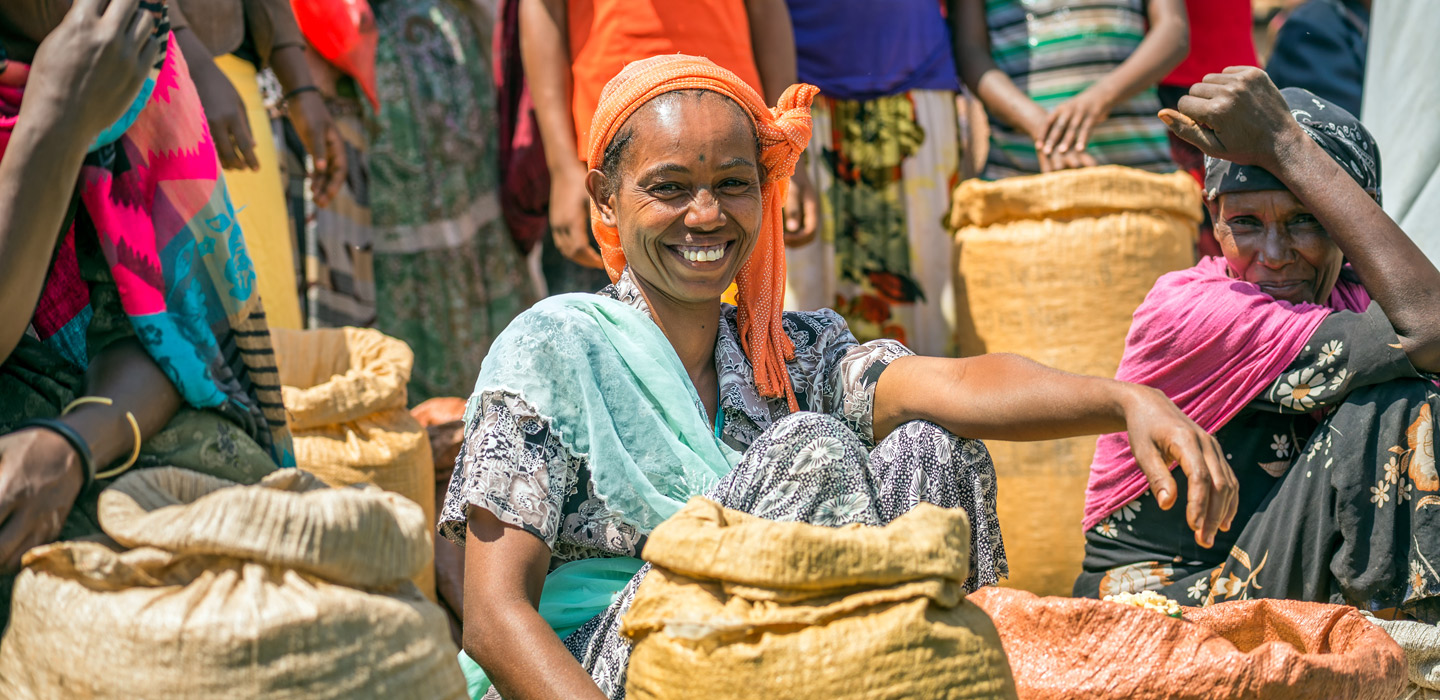Global gender transformative approaches initiative for women’s land rights
Global gender transformative approaches initiative for women’s land rights BANNER

Global gender transformative approaches initiative for women’s land rights
Global gender transformative approaches initiative for women’s land rights
Access to land and resources and control over them are vital components of women’s empowerment. Land is a critical physical asset, but also has a social role, defining social status and political power and structuring relationships both within and outside the household.
Yet many rural women face significant barriers to enjoying land rights, limiting their ability to fully participate in and equally benefit from profitable economic activities. Restricted access to resources and services, such as land, finance, healthcare, education, market information, agricultural inputs and technology, are compounded by broader systemic barriers. All of which are exacerbated during times conflict, food, economic and environmental crises.
The Global Gender Transformative Approaches initiative for Women’s Land Rights is a global initiative with the overarching goal to promote and strengthen women’s land rights through the integration of gender transformative approaches (GTAs) in rural development interventions in Bangladesh, Colombia, Ethiopia, The Gambia, Kyrgyzstan, Niger and Uganda.
Jointly implemented by IFAD and a consortium comprised of the Center for International Forestry Research and World Agroforestry Centre (CIFOR-ICRAF), the International Food Policy Research Institute (IFPRI) and the Alliance of Bioversity International and the
International Center for Tropical Agriculture (CIAT), the initiative works with selected IFAD projects to enhance the recognition and protection of women’s land rights (WLR) and contribute to the creation of conditions that would enable women’s enjoyment of land rights over time.
The initiative has three main objectives:
- To design and deploy innovative and participatory GTAs that contribute to the increased recognition and protection of WLR in targeted countries.
- To engage key stakeholders at local and national levels to build capacities and ensure that evidence and experiences from country-level pilots inform relevant policy and implementation processes.
- To generate evidence-based recommendations and share best practices for integrating GTAs into IFAD’s global portfolio and advocacy strategy.
Understanding and addressing the institutional barriers women face across different levels is essential both to achieve gender equality and to secure rights and access to land. The three-year initiative (2021-2024), is structured around two components comprising gender analysis and piloting tools, and scaling up the GTA agenda. The initiative will develop and pilot context-appropriate gender transformative approaches to advance the recognition and protection of women’s land rights in different IFAD projects. The initiative team works collaboratively with IFAD project personnel in each country to share, add value and learn from ongoing efforts. Approaches that are useful, appropriate and relevant are being shared to scale up women´s land rights.
Each IFAD project is unique, entailing different phases and timelines of project implementation, approaches to address gender considerations, and issues concerning rights to land and resources. Few focus explicitly on land rights or gender equality, but land and resource tenure rights and gender are underpinning project implementation, offering a variety of entry points for intervention. The initiative uses the different types of projects in order to pull out learnings from the different contexts and promote cross learning.
Contacts
Publicador de Conteúdos e Mídias

Rikke Grand Olivera
Lead Global Technical Specialist, Land Tenure & Natural Resources Management
Related stories
Related stories
The potential and unknowns of gender transformative approaches
With less than a decade left to meet the Sustainable Development Goals, the sobering current global trajectory is one in which it will take roughly 170 years to achieve gender equality. The current global pandemic has both made gender inequalities more visible and worsened them, including in food systems.
Related publications
Related publications
2022 Year in Review: Joint Programme on Gender Transformative Approaches for Food Security and Nutrition
This year in review is a snapshot of the Joint Programme on Gender Transformative Approaches for Food Security and Nutrition in 2022.
Gender transformative approaches for food security, improved nutrition and sustainable agriculture – A compendium of fifteen good practices
The Compendium is a product of the Joint Programme on Gender Transformative Approaches for Food Security and Nutrition implemented by FAO, IFAD and WFP and funded by the European Union.
Guidelines for measuring gender transformative change in the context of food security, nutrition and sustainable agriculture
In the framework of the EU-RBA Joint Programme on Gender Transformative Approaches for Food Security and Nutrition, these Guidelines aim at enhancing the capacity of research and development partners to design, implement, monitor and evaluate gender transformative interventions.